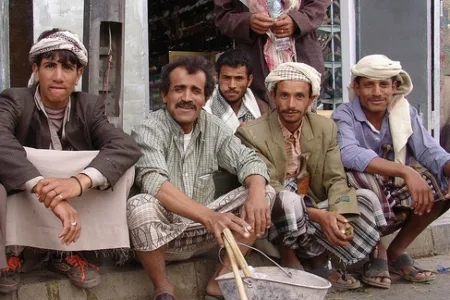Establishing inclusive societies in fragile states

In the development field, establishing inclusive societies in fragile states is the challenge. Everything, from reduced conflict and poverty to improved governance, democratisation and economic growth, hinges on it. However, despite considerable amounts of aid, change remains elusive. Countries from Nigeria and South Sudan to Yemen, Iraq and Pakistan are plagued by exclusion, and governments in such troubled states often are a primary cause. As the author argues in his recent book, Betrayed: Politics, Power, and Prosperity, establishing an inclusive society requires action on many fronts at once, be they “macro” (ideology, incentives and governance) or “micro” (connectivity, healthcare and education). Overcoming the divisions that encourage conflict and exclusion and hold back development is possible only if leaders – politicians, businesspeople, officials and heads of civil society – consistently act inclusively.